Cebu Landmasters’ Chairman and CEO, Joe Soberano III, didn’t plan on returning to the real estate industry but life had other plans. “That’s the thing about finding your own career,” he tells The CEO Magazine. “You don’t know where it’s going to hit you. Real estate was supposed to be a temporary thing, but when I realised that it made well, and I saw the value of it, I decided to go back down that road.”
After completing an economics degree from the Ateneo de Manila University in the Philippines, Joe joined Ayala Corporation where he worked for 23 years. The oldest and largest conglomerate in the Philippines, Ayala Corporation has interests across several industries including real estate, retail, telecommunications, healthcare and electronics. With these diversified interests, Joe was able to work in its various subsidiaries, such as Ayala Investment, Bank of Philippine Island and its real estate arm, Ayala Land.
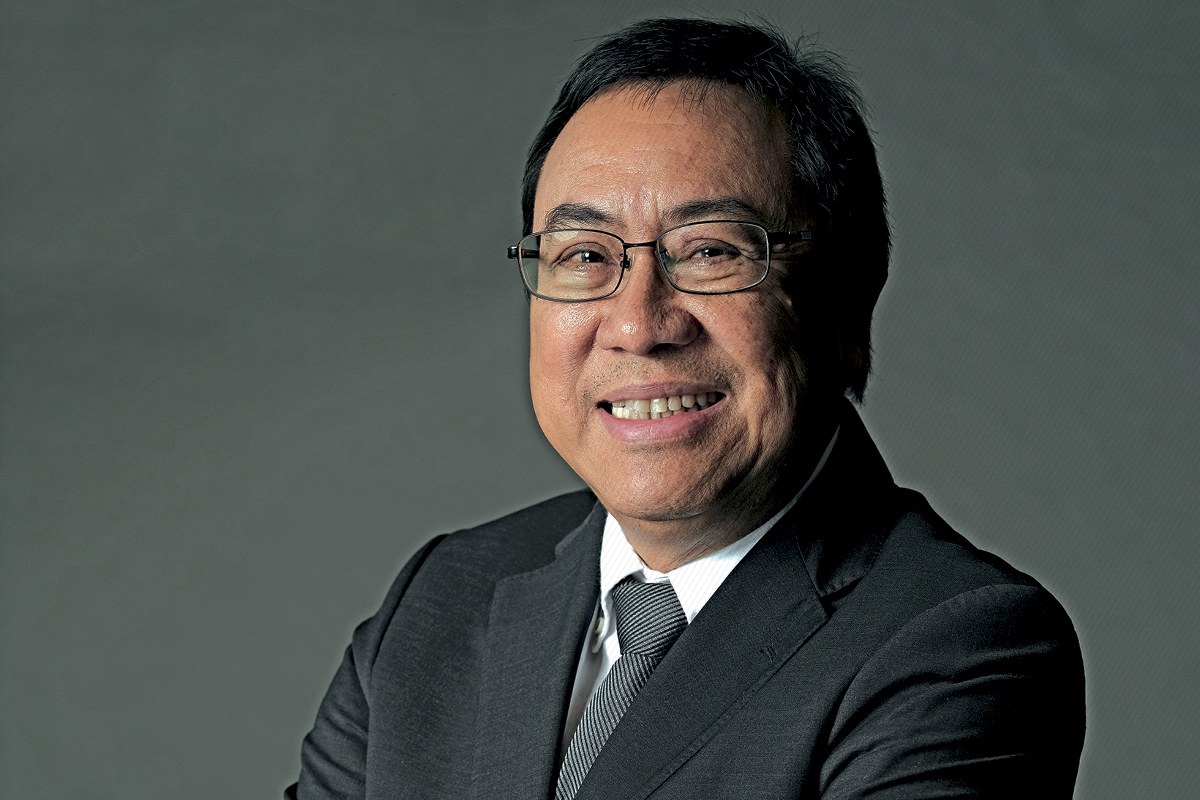
While at Ayala Land, Joe was one of the pioneering groups that created Cebu Holdings – the Ayala Land property development subsidiary in Cebu City – where he led several vertical and horizontal property developments. Of those were the iconic Cebu Business Park and Cebu IT Park – urban redevelopments that have proven vital to Cebu’s economic present and future.
Joe eventually rose through the ranks to become Senior Division Manager at Ayala Land and Vice President of Cebu Holdings. But after a long and successful career with Ayala Land, he decided to leave and, instead, make his mark in politics. In 2001, Joe ran for Congress, aiming to secure a seat as a representative of the third district of Cebu province, but unfortunately, he lost. However, this led him in another direction.
“Being in this business is already tantamount to public service.”
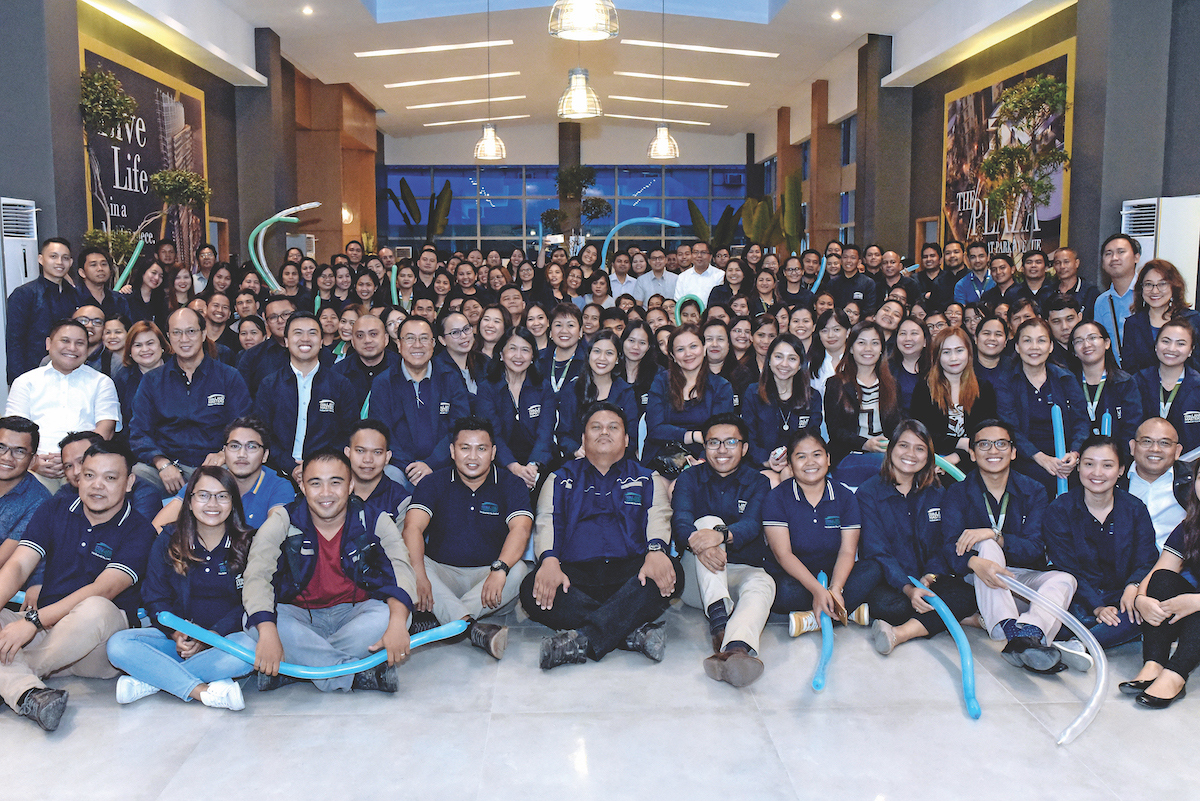
“I had the intention of trying again for Congress in 2004 but, somewhere in between, I stumbled upon a real estate opportunity,” Joe says. “I didn’t pursue my plans for politics anymore, but stuck it out with real estate.” Joe discovered that several workers from Tsuneishi Heavy Industries – a Japanese shipbuilding and repair centre in Balamban, Cebu – lived in either rented rooms or houses. This was despite them having the ability to afford a home because the Japanese company paid generally high salaries.
And therein lay the opportunity which Joe saw, born from his years in real estate and his passion for public service. “I acquired a three-hectare property which I developed and sold, and called San Josemaria Village,” Joe says. “It was named after my patron saint, St Josemaria Escriva. This became the first project of Cebu Landmasters.” Joe constructed 200 residential units with the property, and ensured that they were affordable. The development was a massive success, with each unit selling fast. “I then realised that providing homes and addressing the needs of people is a form of public service so I went on to my next real estate projects,” Joe continues. “Then they just sprouted, one venture after another.” And thus, in 2003, Cebu Landmasters Inc. (CLI) was born.
CEBU City
Cebu is the capital of the south of the Philippines and is the country’s second largest city after Manila. It was the first city in the Philippines to be settled by the Spanish back in 1521 – seven years earlier than Manila – and is often referred to as the ‘Queen City of the South’ due to its strategic and economic capabilities. Even prior to Spanish settlement, Cebu was a prosperous region; it served as a key trade and commerce route because of its naturally protected harbour. Now it has greater access to international seaports and its airport can handle a large intake of goods, further strengthening its business importance.
Laying the foundations
Beginning with just Joe and an assistant, CLI brought with it a commitment to ‘build with you in mind’. It is a nod to Joe’s desire to support the public. “In a way, I feel that being in this business is already tantamount to public service,” he says. “We remain espoused to the true meaning of local real estate mastery – one that always seeks the true satisfaction of our homeowners and investors.”
With its first development in Balamban complete, the company followed it up with San Josemaria Villages in Minglanilla, Toledo and Talisay, all with the same affordable and high quality homes. Over the years, CLI diversified its offerings and now has 51 projects in different stages of construction under its belt. These are located in eight cities around Visayas and Mindanao (VisMin region) in the Philippines and include condominiums, subdivisions, offices, mixed-use properties and hotels. “We have become one of BCI Asia’s top 10 developers in the Philippines,” Joe adds.
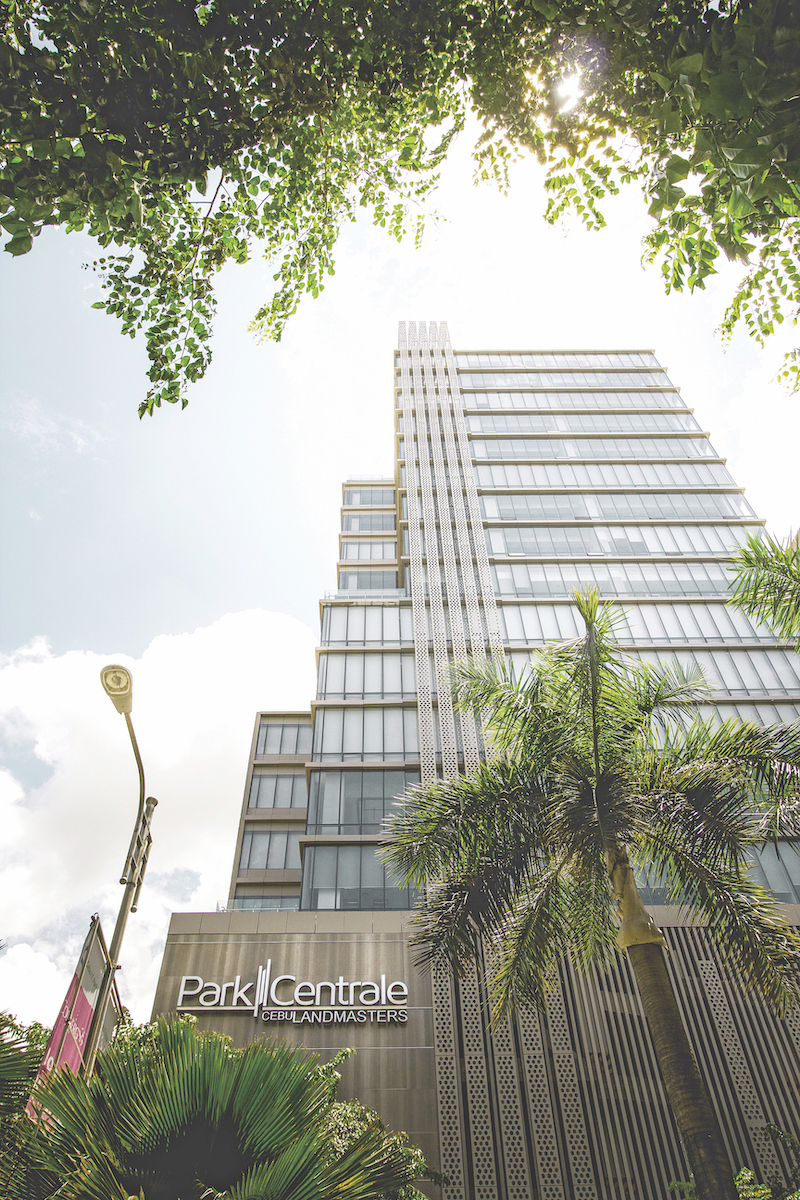
There are a number of strategies Joe has implemented to make CLI a leading property developer. The first is setting an ‘acquire to develop’ strategy to ensure quick turnaround with project delivery. “From land acquisition, it only takes between six and nine months for us to develop and launch a project,” Joe says. “We do our business in a fashion that makes turnover a lot faster than usual. We position for property acquisitions only with the desire to develop them as soon as possible. And this is the turnover advantage that we always put ourselves into.”
A string of other factors gives the company a leading edge over its competitors. “We have a deep understanding of the VisMin market and we are thorough and rigorous when it comes to the selection of our project locations,” Joe says. “We ensure we provide value-added projects with prime amenities and a design that would benefit all markets. And, in addressing the concerns of our homeowners, we ensure that there is always immediate action from our team. These make CLI a cut above the rest.”
One other critical feature is CLI’s personalised approach. “Being very focused and being able to manage all our projects on a hands-on basis is one of the main elements of our business,” Joe says.
“It has been CallisonRTKL’s privilege to partner with Cebu Landmasters in the design and development of several visionary, transformative projects, from landmark hotels and benchmark-setting retail destinations to master plans geared towards long-term viability and resilience.” – Norman M Garden FAIA, Executive Vice President, CallisonRTKL Inc.
“That’s why even at this stage we feel that we are still able to interact with our buyers directly on a personal basis – even with our suppliers – to make sure we are really addressing our project timetable and quality requirements to the letter.”
The work culture
CLI has grown to become a close-knit family business. Joe’s wife, Marose Soberano, serves as Executive Vice President and leads the financing and accounting divisions; their son, Franco, serves as Executive Vice President and Chief Operating Officer; and their daughter, Joanna Marie, is Vice President and Marketing Director.
As a result, the company culture is enshrined in professionalism with a touch of family values. “The virtue of integrity is deeply ingrained in the whole company,” Joe explains. “We are a family-oriented organisation and I treat my employees as my family. Everyone has direct access to top management. We are very open. There are no walls. We have a system wherein anyone can directly bring up any concern, and top management always finds time to properly address them.”
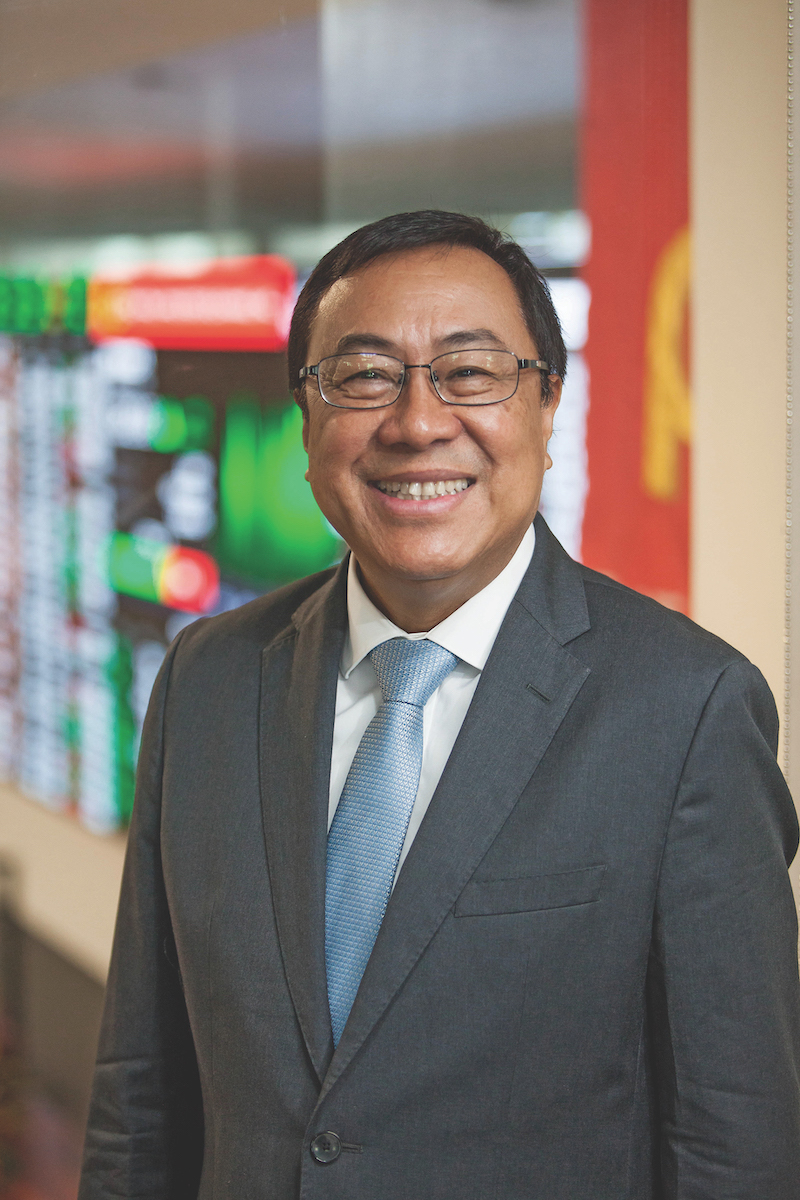
Joe goes on to explain that one has to “keep themselves grounded” when entering a position of leadership. “Having deeply entrenched ethical values and being able to bring out the best of every member of the team are very important characteristics of someone entering a leadership role,” he notes. Joe describes his leadership style, which he says is very hands-on. “It is a combination of time management and thorough calculation of what my hands can manage to take on,” he says. “I lead by example and treat everyone as family. I put a lot of integrity into the work and make sure to participate in every company activity.”
Having owned the company for years, Joe finds the most rewarding part of his role is providing Filipinos with homes they dream of for their families. “Having our very own CLI employees as our homeowners, providing them with benefits to improve quality of life, and giving them professional training that equips them to become more competent and better professionals – these are all gratifying,” he says. “And it doesn’t stop there. Our projects are diversified; we do not only develop subdivisions and condominiums but also mixed-use developments and township projects. All these provide employment, which means wherever there is a CLI development in VisMin, we touch lives, and Filipino families benefit from these.”
“The virtue of integrity is deeply ingrained in the whole company.”
In an article by Entrepreneur Philippines, Joe Soberano provided tips for small-to-medium-sized businesses on how they can compete with larger corporations:
-
Add a personal touch
Big corporates always make sure they follow processes and have a system for each of their operations and as a result, their products can become homogenous.
To stand out, SMEs can offer something more personalised for clients. For example, Joe would personally give the keys to new residents and his son, Franco, would deliver lechon, a dish of spit-roasted pork popular in the Philippines, during a homeowner’s meeting.
-
Better client relationships
SMEs have a greater potential to get close to their clients and in turn, clients can have better communication with the company. This can leave clients with a stronger sense of security if they are able to talk to the owner directly.
-
Lower overhead cost
Thinking back to his first project in Balamban, San Josemaria Village, Joe believed larger companies avoided the opportunity because they thought it would cost them more due to their larger overhead cost.
Larger companies would have had to provide more costs because of their larger workforce. San Josemaria Village was organised by Joe and his assistant; Joe did the planning, permits and follow up, and his assistant handed out sandwiches during breaks.
-
Strong relationships with local government units
Joe notes that it is easier to work with local government regulators if you already operate in the region they govern. It means you can potentially secure permits more efficiently, which means faster start times when constructing.
-
Reduced bureaucracy
Having good relationships with your clients means
they could have potentially less bureaucracy to deal with, and you can secure higher prices. “They’d rather give a good price, a much lower price to me because [it’s] unlike the bureaucracy of presenting a billing, and how long it will take for them to get the releases,” Joe told Entrepreneur Philippines.
“Cebu Landmasters empowers Fuji-Haya Electric and LS (Korea) to showcase our safe and reliable power protection systems and services to the Visayas-Mindanao market. It is an honour and pleasure to be partners with such dedicated professionals as Cebu Landmasters.” – Hi Kian Yu, Managing Director, Fuji-Haya Electric
A major milestone
One of the biggest milestones for the company so far has been getting listed on the Philippine Stock Exchange (PSE), which happened in June 2017. “We felt that we were doing a lot of work governance practices already, even before we got listed,” Joe says. “It’s just that it formalised many of the things that we were doing. The new things, of course, are the report requirements that we have to do on a regular basis for both PSE and SEC (Securities and Exchange Commission).
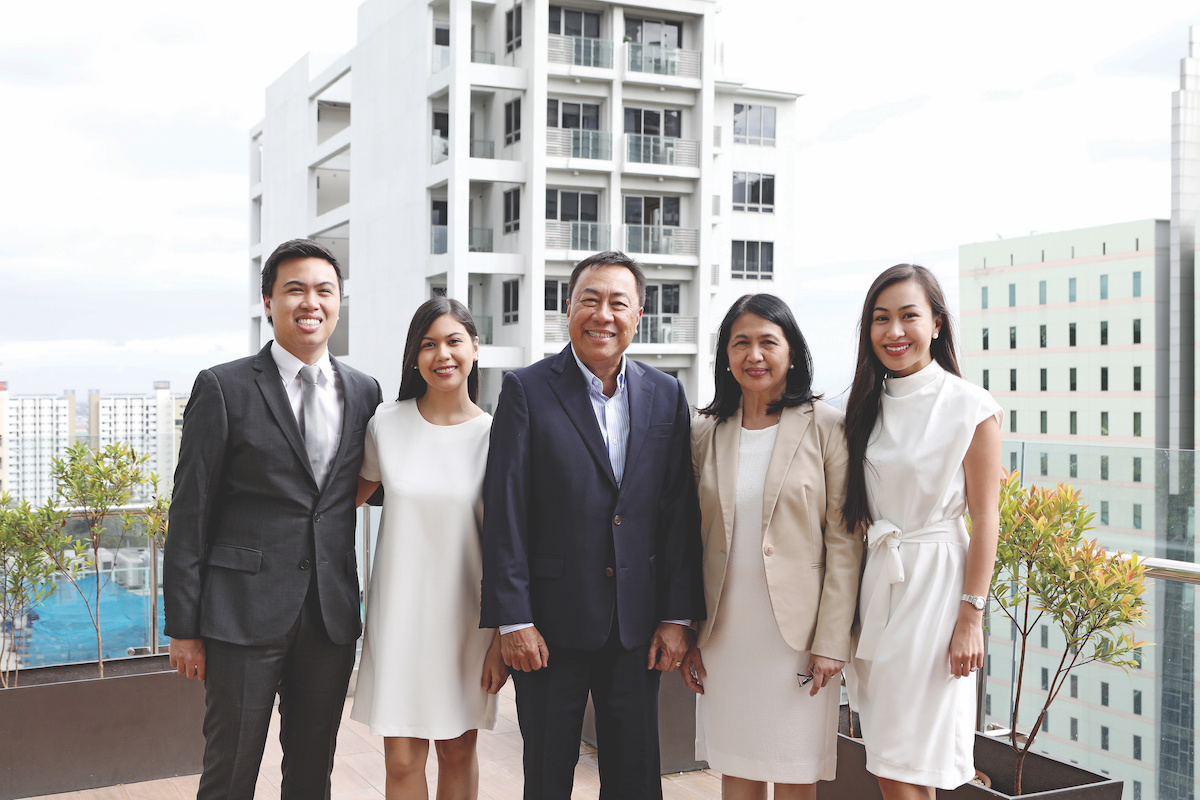
“This time around, we feel that we are doing this also for the public, not just the investors. While we have always been serving our customers, and making sure that we are with the right suppliers, this time we have this new element of having to make sure that we are also addressing our investors’ needs. The other new aspect is that it geared us up for a lot of expansion, and the avenue for a capital market is there to support whatever moves we would be making.”
Supplier relationships
Cebu Landmasters ensures it maintains strong partner and supplier relationships with companies such as Fuji-Haya Electric Corporation, CallisonRTKL, Kohler Asia Pacific and Dakay Construction. “It works both ways,” Joe says, describing how CLI keeps these relationships over time. “We are able to get good service and deliveries, and we also take care of them. The suppliers also connect us with the latest trends. They want to make sure that we enjoy the key advantages of what they have to offer because things are moving very fast with innovation and technology. So, we are not just going to be strapped with a single product or a particular dimension of that product. All this information becomes more open to you if you are very positive and grow your relationship with the supplier.”
And speaking of trends, Joe goes on to identify the key trends shaping the Philippines’ property development industry, signalling good prospects for CLI. These include strong growth in the residential segment, which implies a parallel growth in the retail sector; and an increasing number of visitors in the country, which means a higher demand for accommodation services. Plus, as the Philippines is one of the top outsourcing destinations in Asia, it means residential properties will once again be in demand.
“More than a valuable business partner in the industry, I am privileged to have Joe as a close friend. Joe is very successful in cascading his core personal values, business integrity and ethics into the bedrock of CLI’s corporate principles.” – Pericles P Dakay, CEO, Dakay Construction and Development Corp
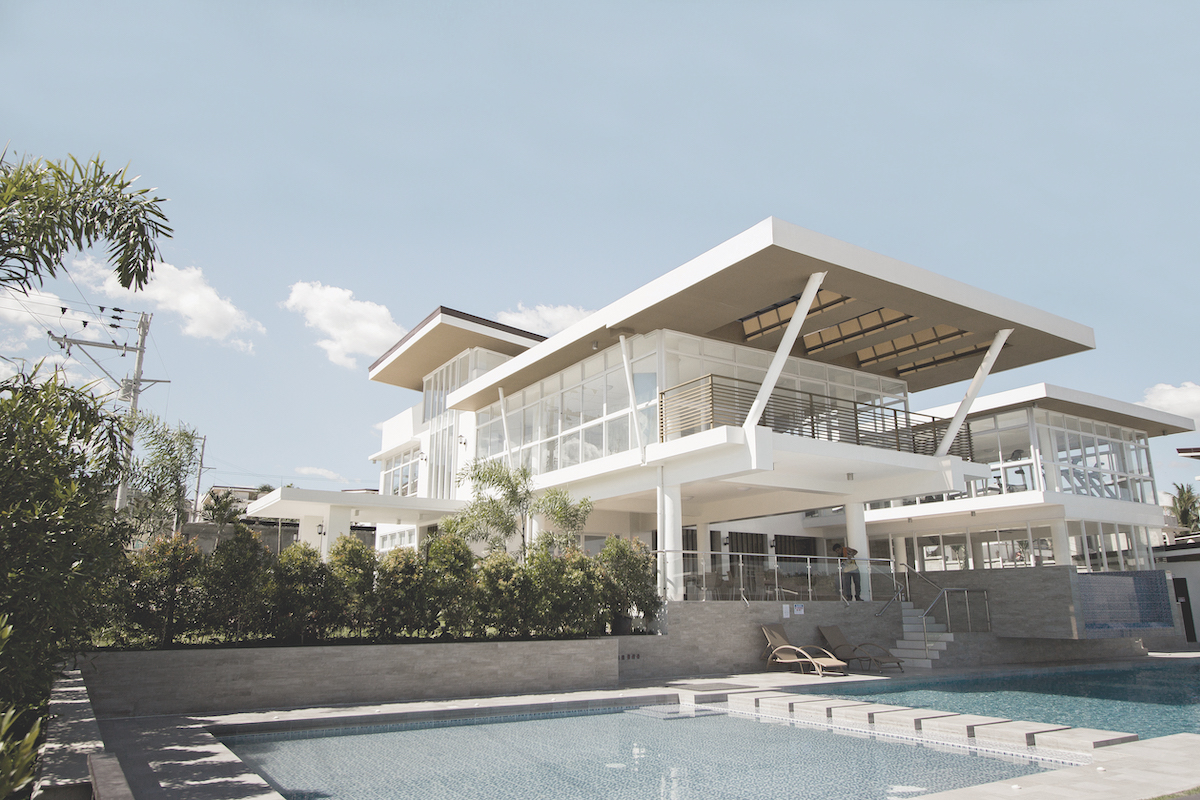
Building for the future
For now, the company is mainly concentrating its efforts on the VisMin region. “We focus on VisMin as this is what we can take for the moment,” Joe explains. “We’ve created developments in these areas and we want to continue to be part of them by being involved and always being there for their concerns. This is the main reason we established CLIPM, our property management arm, to make sure that the developments we have created are well taken care of even after the units are turned over.”
“We remain focused on operating as a responsible community-builder and developer that is committed to being with you every step of the way.”
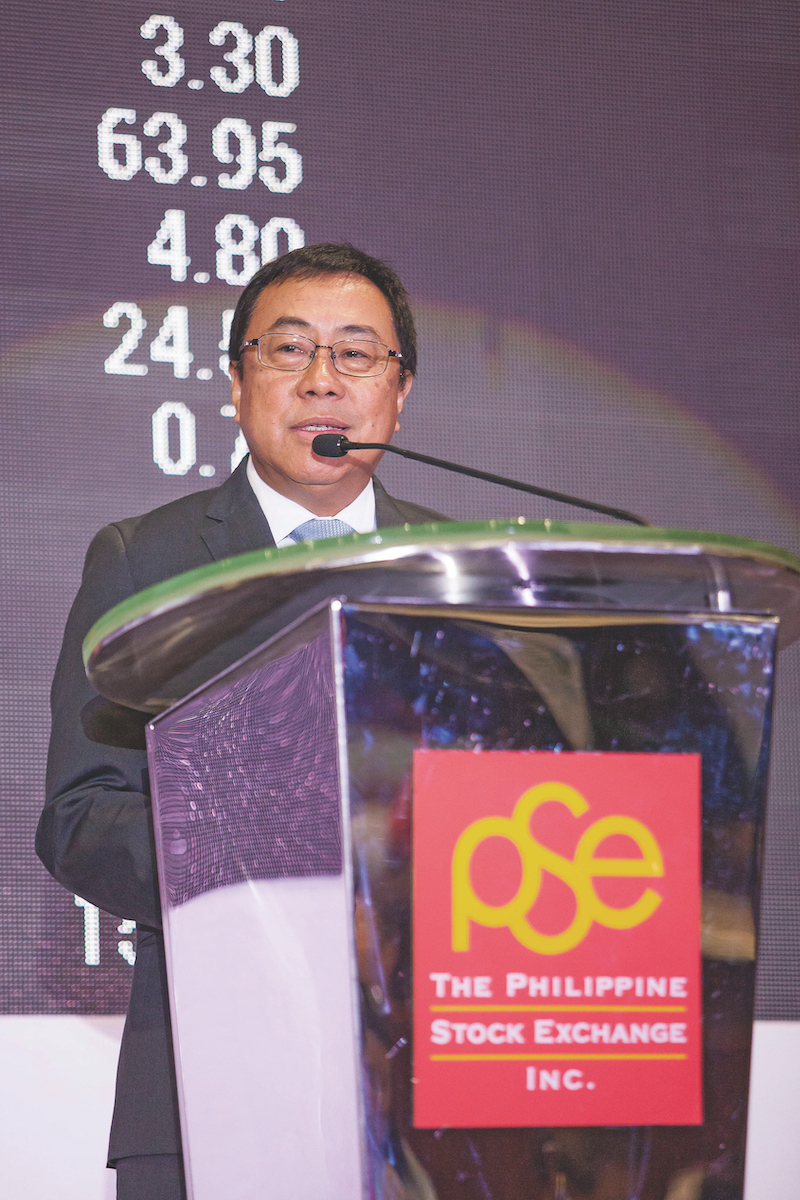
Joe’s vision for CLI is to become the number one real estate developer in Visayas and Mindanao by 2020. “Beyond that, we remain focused on operating as a responsible community-builder and developer that is committed to being with you every step of the way,” he says. “Cebu Landmasters is in constant pursuit of taking to heart that ‘We Build with You in Mind’.”
Over the coming three to five years, many of the company’s current projects will become fully operational. Further, the company will continue to expand and develop new projects in more VisMin cities, as it has already sought new ventures in opportune markets such as General Santos, Butuan, Ormoc, and Roxas City.
“We are very excited with our partnership with Cebu Landmasters and their use of Kohler products in their developments as this is aligned with our mission to contribute to quality kitchen and bath living spaces to delight their customers.” – Adam Quek, SEA General Manager & Commercial Director, Kohler Asia Pacific”
At the end of the day, it all comes down to the continuous improvement of the company. “Organisational capability is what we have to improve all the time,” Joe says. “We’re not ever going to be satisfied with what we have. We must continue to strengthen ourselves to become more efficient in our operations. These are under constant review and that’s how we would like to address ourselves.
“Preparing the second generation is the other crucial element here. We want to make sure our team are fully harnessed to step up to any responsibility that we have to face because of the projects we have in plan.”
Cebu Landmasters’ suppliers
A strong supplier relationship is a major step toward a successful business. Here is a closer look at some of Cebu Landmasters’ suppliers:
-
Fuji-Haya Electric Corporation
Founded in 1978, Fuji-Haya Electric manufactures electrical distribution and control equipment. It was established following a technical licensing agreement between Haya Electrical Industries and Fuji Electric Co.
The company supplies several industries from small commercial buildings to malls, utility companies and manufacturing companies. Its product range includes transformers, panel boards and switchgears.
-
CallisonRTKL
CallisonRTKL is a global architecture, design and planning firm, with nearly 1,700 employees around the world. It has conducted works for several industries such as hospitality, retail and automotive.
-
Kohler Asia Pacific
Kohler Asia Pacific designs and manufactures premium kitchen and bathroom products. It takes this one step further with its intelligent toilets and cleansing seats, which brings innovation to the bathroom.
-
Dakay Construction & Development Corporation
Dakay Construction & Development Corporation (DCDC) was founded in the 1970s in Cebu, Philippines, and undertakes work for industrial projects, hotels and resorts, ports and harbours, learning institutions and more. At its core is a commitment to build with integrity.
A proud legacy
Joe is especially proud of the response CLI has been receiving from the market. “The brand has been enriched over the years; we seem to be something that has amazed a lot of people,” he says. “Even my organisation is amazed at how fast we have grown in so short a time. I feel that the level of commitment we have as an organisation, as a family business that is now publicly listed, will continue. The level of commitment we have has been proven. We are especially eager about how we are so well-received as a brand.
“That’s why I’m surprised when I go to new cities with projects in, say, General Santos, Butuan or Ormoc City. I’m surprised that we are already known, that the brokers and the buyers that they’re targeting are expecting us. There’s now a name recall and we try to keep up with that image because of the level of commitment we set for ourselves and that we can deliver.”


